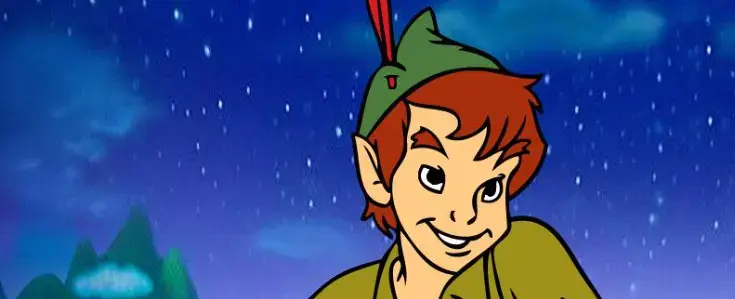When most people discuss perpetual copyrights, they’re usually its at least somewhat hyperbolic.
Outside of Mexico, copyrights in every nation expire and works become free for others to use without permission or royalty.
However, there is one interesting exception to that rule: Peter Pan.
Through a special bill in the U.K., the boy who never grows up has been granted a copyright that, at least in part, will never expire.
While the case of Peter Pan is certainly an unusual one, it raises much larger questions about the purpose of copyright, how long copyright terms should be and what the function of copyright law should be.
So it’s worth taking a moment to understand how the boy who won’t grow up became the boy who won’t completely enter the public domain.

Key point - rights to certain royalties were given by the author to the leading children’s hospital in the UK. This makes it very different indeed. Helping fund Great Ormond Street Hospital is the far greater good.
Good summary!
This makes it very different indeed.
Is it though? I’d frame it as “government robs children of new Peter Pan stories in order to pay for childrens’ hospital” – it’s like those ‘feel-good’ stories in the news about children laboring at lemonade stands to raise funds for their mother’s cancer treatment. It’s easy to forget that these are scenarios with only bleak options because of the unstated premise that the rich will never pay their share.

Don’t let perfect be the enemy of good.
Yes, the rich should pay more, a hell of a lot more. I’ll go further and say that in a perfect world they shouldn’t be allowed to become so wealthy in the first place because the only way to do that is through exploitation of collective resources and other people’s labour.
Yes, Great Ormond Street should be fully funded via the government, as should the rest of the NHS. Yes, it should be stable and not subjected to party politics, disaster capitalism or grift. We’re a very long way from any of that though and we are talking about children’s lives. And even in a perfect world, more money will still be of use.
Children need new stories but they don’t need new Peter Pan stories specifically. Moreover, writers and other creators who want to write new Peter Pan stories can still do so. They just have to pay a percentage of the income from the use of this particular IP in the UK as royalties.
I’m not keen on your framing at all.
Maybe a better framing would be “Rich would rather censor children’s story than pay for children’s hospital” - its understandable to not feel outrage over this based on all the worse things that are going on in the world, but that doesn’t mean it’s not deserving of outrage. I don’t think this is a case of perfect being the enemy of good, but rather the shock doctrine aspect of disaster capitalism; it’s difficult to gather sympathy for the principle of free speech when children are literally dying.
It’s important to look at this from a principled perspective; though isolated the Peter Pan, the case enshrines in law that what can be published can be restricted if there’s a sufficiently sympathetic non-sequitur issue. This isn’t even the “yelling fire in a crowded theatre” justification that was used to imprison anarchists for telling the truth about WWI, where the justification is related to the effect of the speech. Peter Pan stories have no natural connection to children’s health, but allowing sentimental framing to trump principled proceedure perpetuates a lack of care in British society for the principle of free speech. It’s a slippery slope that has been borne out in the ways censorship of journalism harm modern British society much more than ~1.5M yearly funding for a children’s hospital can justify.
It’s more than “Children deserve hospitals and stories too” - British children deserve hospitals and better government, stronger journalism, and protection from BBC and religious pedophiles too.

This is also an inaccurate and misleading framing.
It’s not censorship or a free speech issue. Neither GOSH nor the government control who can create derivative works. It’s just that a percentage of book or ticket sales have to be paid as royalties to GOSH.
That’s it.
Thank you continuing this dialogue; I saw your bio, and though we disagree on this particular issue, I think we have a lot in common, and I appreciate your participation here.
Neither GOSH nor the government control who can create derivative works.
Unfortunately, that is not the case. They used their position to selectively control publication of works they didn’t approve. That’s clearly censorship.
But even if they only collected royalties, it would still be a free speech issue. Selectively assigning monetary costs to certain speech is an abridgement of free speech, for the same reason SLAPP lawsuits are a free speech issue.

From the article you linked to originally:
"As a result, the hospital is still entitled to royalties for uses of Peter Pan in the country. However, these rights have several key limitations: “Royalties Only: The provision only allows the hospital to collect royalties, not to grant permission for uses. This came up in 2007 when the pornographic graphic novel Lost Girls was delayed in the UK until 2008, after the copyright Barrie’s work expired.”
From your “this is not the case” wiki entry: “On 23 June 2006, officials for Great Ormond Street Hospital (GOSH) —which was given the copyright to Peter Pan by J. M. Barrie in 1929—asserted that Moore would need their permission to publish the book in the UK and Europe… [Top Shelf] delayed publication of Lost Girls in the UK until after the copyright lapsed at the end of 2007.”
So two of YOUR sources note the 2007 change in status. Until the end of 2007, GOSH held copyright control in the UK. They no longer do. Barrie died in 1937, 2007 was 70 years after his death. Normal UK copyright law.
<Selectively assigning monetary costs to certain speech is an abridgement of free speech,> Are you saying that ALL royalties for derivative works/use of IP are an abridgement of free speech in your view? I’m not keen on that redefinition of the term.
Are you saying that ALL royalties for derivative works/use of IP are an abridgement of free speech in your view?
I do believe copyright, its continued extensions in favor of rights-holders, and associated attacks on the fair use doctrine are abridgements of free speech. I also believe each addition of complexity to copyright law is a gift to copyright law firms and the consolidated publishing corporations who can easily afford to employ them, as well as an attack on small publishers and authors to whom employing solicitors and barristers is an onerous burden. But that’s not what I’m arguing here.
I’m saying that granting eternal royalties from Peter Pan to GOSH creates a monetary disincentive for anyone but GOSH to publish derivative Peter Pan works. This creates a chilling effect on the republication of Barrie works and re-use of Peter Pan characters, and is worthy of outrage. This is similar in effect to the intractable libel laws that financially disincentivize publishing negative news about powerful figures and institutions in Britain, which is even more outrageous. I’m also saying that the special copyright status of Peter Pan and larger problems like the libel law situation are evidence of the same underlying issue: Britain’s relative disinterest in protecting free speech.


